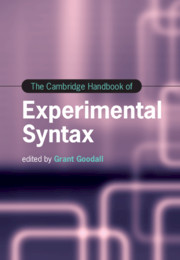Language acquisition is characterized by progressive use of inflectional morphology marking verb tense and agreement. Linguistic milestones are also linked to left-brain lateralization for language specialization. We used neuroimaging (fNIRS) to investigate how bilingual exposure influences children's cortical organization for processing morpho-syntax. In Study 1, monolinguals and bilinguals (n = 39) completed a grammaticality judgment task that included English sentences with violations in earlier-acquired (verb agreement) and later-acquired (verb tense/agreement) structures. Groups showed similar performance and greater activation in left inferior frontal region (IFG) for later- than earlier-acquired conditions. Bilinguals showed stronger and more restricted left IFG activation. In Study 2, bilinguals completed a comparable Spanish task revealing patterns of left IFG activation similar to English. Taken together, the findings suggest that bilinguals with linguistic competence at parity with monolingual counterparts have a higher degree of cortical specialization for language, likely a result of enriched linguistic experiences.
